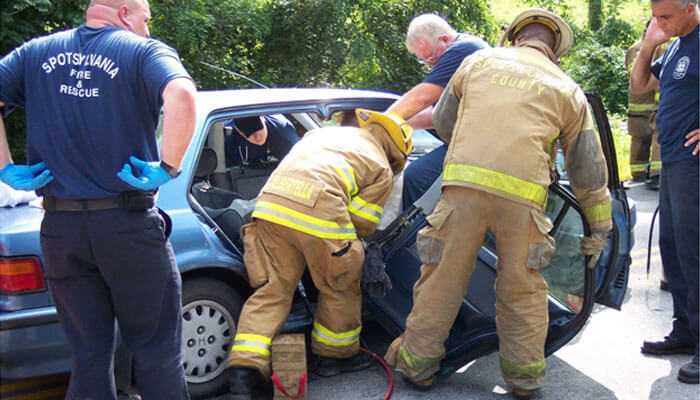Car accidents are never fun, and the nightmare doesn’t end with the accident itself. Assessing for personal injury is almost always the first thing we do, but in the heat of the moment, it can be hard to remember what to do next. Do you move the car? Are the police necessary? What should you say/not say to the other driver(s)?
Whether you have a great personal accident insurance policy or you’re driving someone else’s car, there are certain things you need to do and several you need to avoid. No matter how long you’ve been driving or how good of a driver you are, accidents happen, and if you’re unfortunate enough to be in a car crash, you need to keep the following in mind:
Safety First
Your first instinct will likely be to use your internal collision estimate software to evaluate the cost of the damage to your vehicle, but before you get out, you need to check for injuries. If you or any of your passengers are hurt, call emergency services immediately and try not to move unless there is a danger of further injury. Even if injuries aren’t immediately evident, you need to be careful. Deployed airbags, displaced car seats, and shattered glass are all indicators that there could be problems that will only be revealed in the coming hours or even days.
Next, check your surroundings. If you’re a hazard or are impeding traffic flow, do not get out and, if able, move the car to the side of the road or otherwise out of the way. If the vehicle is disabled, turn on your emergency flashers, turn off the engine, carefully exit, and place emergency road flares around the car to warn other drivers, especially if the accident is at night.
Wait a safe distance away. Secondary crashes result in hundreds of deaths every year, so remain diligent at all times and watch your surroundings.
Call Emergency Services
Don’t assume that someone else called 911; do it yourself. No matter how small or how big the car crash is, it’s super important to call the cops—some states require it by law. The police will come, check out what happened, and take a report. If, for some reason, the police can’t make it, you can go to the police station near you and tell them what occurred. Later, when you need to tell your accident insurance company about the accident so they can help cover costs, they might ask for the police report to better understand what happened
Exchange Information
After making sure you and any passengers are uninjured and out of harm’s way, while you wait for emergency services, you can go ahead and exchange the following information with the other driver(s):
- Full name
- Contact information
- Insurance Company Name
- Insurance Policy Number
- Driver’s license number
- Make, model, and color of the vehicle
- License plate number
- Do NOT admit fault
Lastly
Make sure to do the following as well:
- Get the name/badge number of the responding officer.
- Find out how you can obtain a copy of the accident report.
- Take photos of all vehicles from different angles.
- Talk to witnesses and get their names and contact information.
- Contact your insurance provider.
This is just a quick overview of what you should do in the event of a car accident. For more detailed information on what to do after a car accident, consult your state’s DMV website or speak with a legal professional. Remember, staying calm and following proper protocol can help you handle yourself effectively in the aftermath of a car accident.
For residents in Wichita, coordinating with an experienced team of car accident attorneys could be advantageous to ensure your interests are fully represented. They can guide you through managing insurance claims and provide clarity on liability questions specific to Kansas law.



